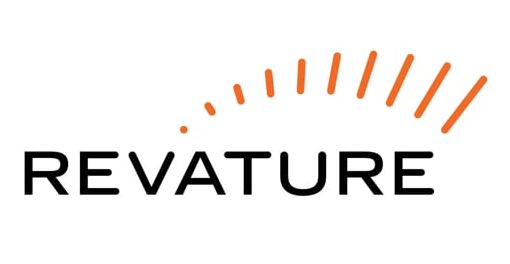Revature 200413

Data Engineering with Java & Apache Spark
Week 1 - Java
Concepts
- Environment: PATH, CLASSPATH, JAVA_HOME, command vs flags vs args
- Platform Independence: JVM
- Memory model: Stack, Heap, String Pool, Garbage Collection, Concurrency
- Compile time vs Runtime: Source code vs Bytecode
- Object Oriented Programming: Polymorphism, Encapsulation, Inheritance, and Abstraction
- Source Code Management: Gitflow
- Project, Dependency, Build Management
- Unit testing: Test Driven Development, Red-Green-Refactor
Tools
- JDK:
javac,java,jar - Git
- Gitflow: init, add, commit
- Branching & Merging: checkout, merge
- Local & Remote Repositories: clone, remote, pull, push
- Git vs GitHub
- Maven (
mvn)- Project Object Model (POM) XML manifest file
- Management: clean, archetype:generate, exec
- Build Lifecycle: compile, test, package
- JUnit
- Assert API
- Annotations: @Test, @Before, @After
Language Features
- Default Constructor
- Overloading and Overriding
- Checked vs Unchecked Exceptions
- Variable scopes: class/global, object/instance, method, block/loop, bracket
- Interfaces: functional vs marker, default fields & methods
- Abstract Classes
- Anonymous Classes
- Lambdas & Streams
- Generics: type inference, type erasure, bounded types
Language Syntax
- Package & Import
- Class & method signatures: parameters, access modifiers, return types, constructors, varargs
- Access modfiers: public, protected, (default), private
- Non-access modifiers: static, final, abstract, synchronized
- Control statements: if, if else, else, while, do/while, for, switch, continue, break
- Primitive types: byte, short, int, long, char, boolean, float, double
- Reference types: Classes, Enums, Interfaces, Arrays
- Inheritance: extends, implements
- Exception handling: try, catch, finally
Standard Library
- java.lang
- Object:
toString(),hashcode(),equals(),finalize(),notify() - String, StringBuilder & StringBuffer
- Wrapper Classes: Integer, Double, etc.
- Iterable:
forEach() - Comparable:
compareTo() - AutoCloseable (try-with-resources): close()
- System:
in,out,getenv(),gc() - Runnable & Thread:
run(),start(),isAlive(),join() - Reflection: java.lang.reflect, Class
- Throwable: Error, Exception, RuntimeException
- Object:
- java.io
- File
- InputStream/OutputStream vs Reader/Writer
- BufferedReader & BufferedWriter
- Serializable
- ObjectInputStream & ObjectOutputStream
- java.util
Design patterns
- Singleton
- Factory
- Dependency Injection
- Data Access Object
Questions
- What is Java?
- What are the benefits of Java?
- What is the difference betwwen the JRE, JDK, and JVM?
- What happens during the compilation process?
- What is a constructor?
- What are the primitive datatypes?
- What is a no args constructor?
- What is the default ocnstructor?
- What are the scopes of a variable in java?
- What are the different access modifiers?
- What are the different control statements and how are they different?
- How do you create an array in java?
- What are varargs?
- What are packages and imports?
- What is a static import?
- What is static?
- What are Strings?
- What are some string methods?
- What is the difference between String, StringBuilder, and StringBuffer?
- What is the String Pool?
- What is the difference between the stack and the heap?
- What is an exception?
- What is the difference between exception and error?
- What are the ways one can handle an exception?
- What are checked exceptions and unchecked exceptions?
- How many catch blocks can be used in a try catch?
- What does the finally block do?
- How do I create a custom exception?
- What is autoboxing?
- What is a wrapper class?
- What is garbage collection?
- How do I perform garbage collection?
- what is the difference between final, finally, and finalize?
- What is the reflection API?
- What are the pillars of object oriented programming?
- What is the different between an abstract class and an interface?
- What is transient? Volatile?
- What are the differences between FileinputeStream, FileReader, and bufferedReader (and their output counterparts)?
- What is Scanner?
- What is serializaiton?
- How do I serialize an object?
- What is a marker interface?
- How do I prevent some data from getting serialized?
- What is the difference between Collection and Collections
- What are the various input/delete/get methods for List, Set, and Queue?
- What is an iterator?
- What are generics? Why use them?
- What is the diffence between Comparator and Comparable?
- What is the purpose of the Object class?
- What is the difference between == and .equals?
- What is the purpose of hashcode?
- What is the difference between HashMap and Hashtable?
- How does one iterate through a HashMap?
- What is multithreading and why do we use it?
- What are the different ways to create a thread, what is different about them?
- What are the JVM recognized states of a thread?
- What are various methods that threads have?
- What is synchronization?
- What are the risks of synchronization?
- What is deadlock, livelock and thread starvation? (Consumer/Producer)
- What is JUnit?
- What are the annotations of JUnit?
- What are the different assert methods of JUnit?
- How do I create a test case and test suite in JUnit?
- What is Maven?
- what is the maven lifecycle?
- What is the purpose of the pom.xml?
- What are the purposes of a maven repository among projects?
- What is the difference between Singleton and Factory?
- What is the difference between implicit and explicit casting?